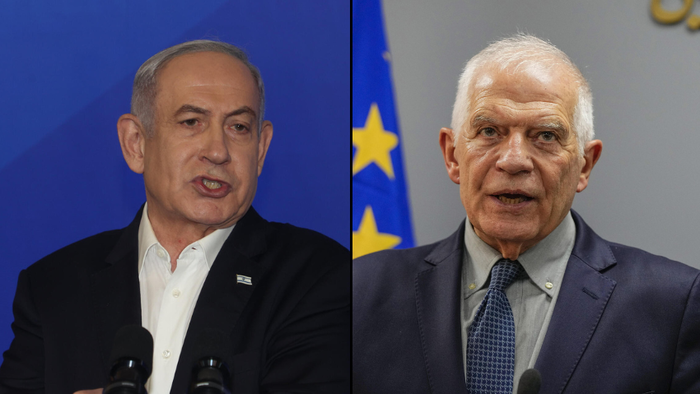


On Wednesday Israeli Prime Minister Benjamin Netanyahu declared that the controversial Rafah offensive, which has been criticized by a number of Western allies including Washington, is expected to "last weeks" and not not months or years.
The Israeli leader appears to be trying to calm the storm of condemnation coming from the West, especially in Europe at a moment at least 500,000 Palestinians have been forced to flee Rafah. On the same day the European Union issued a call for Israel to stop the Rafah operation "immediately".
EU foreign policy chief Josep Borrell warned that if PM Netanyahu doesn't reverse course, it will put a heavy strain on ties. "Should Israel continue its military operation in Rafah, it would inevitably put a heavy strain on the EU’s relationship with Israel," he said a statement issued in the bloc's name.
"The European Union urges Israel to end its military operation in Rafah immediately," the EU official statement said. It warned that Israel's military actions are "further disrupting the distribution of humanitarian aid in Gaza and is leading to more internal displacement, exposure to famine and human suffering."
Israel's army has meanwhile officially disclosed its first death from the Rafah ground operation, which has thus far involved some tank units penetrating Rafah's eastern section:
An Israeli soldier was killed during fighting in the southern Gaza Strip on Tuesday, the military announced Wednesday morning, marking the first fatality in the Israel Defense Forces’ push into Rafah.
The slain soldier was named as Sgt. Ira Yair Gispan, 19, from Petah Tikva. He served in the 7th Armored Brigade’s 75th Battalion.
Gispan’s death brought the toll of slain troops in the Israel Defense Forces ground offensive against Hamas in Gaza and in operations on the border to 273.
The Netanyahu government has thus far sought to deflect criticism by calling the operation "limited" in scope, and so far focusing only on specific sections of the city, after dropping tens of thousands of leaflets warning civilians they must leave.
But this hasn't satisfied the EU. The new statement continues, "While the EU recognizes Israel’s right to defend itself, Israel must do so in line with International Humanitarian Law and provide safety to civilians."
The EU further calls on Israel "to refrain from further exacerbating the already dire humanitarian situation in Gaza and reopen the crossing point of Rafah."
According to some of the latest Wednesday developments via Al Jazeera:
EU and US statements have had little impact in what has only amounted to a verbal tit-for-tat of criticisms. Biden has threatened to withhold offensive weapons, but at the same time has unveiled $1 billion in new defense aid for Israel this week. Clearly this won't 'deter' Israel's path forward in the counter-Hamas Rafah offensive. Israel's defense chief has also announced Wednesday that relations with the US are still "strong and stable".
